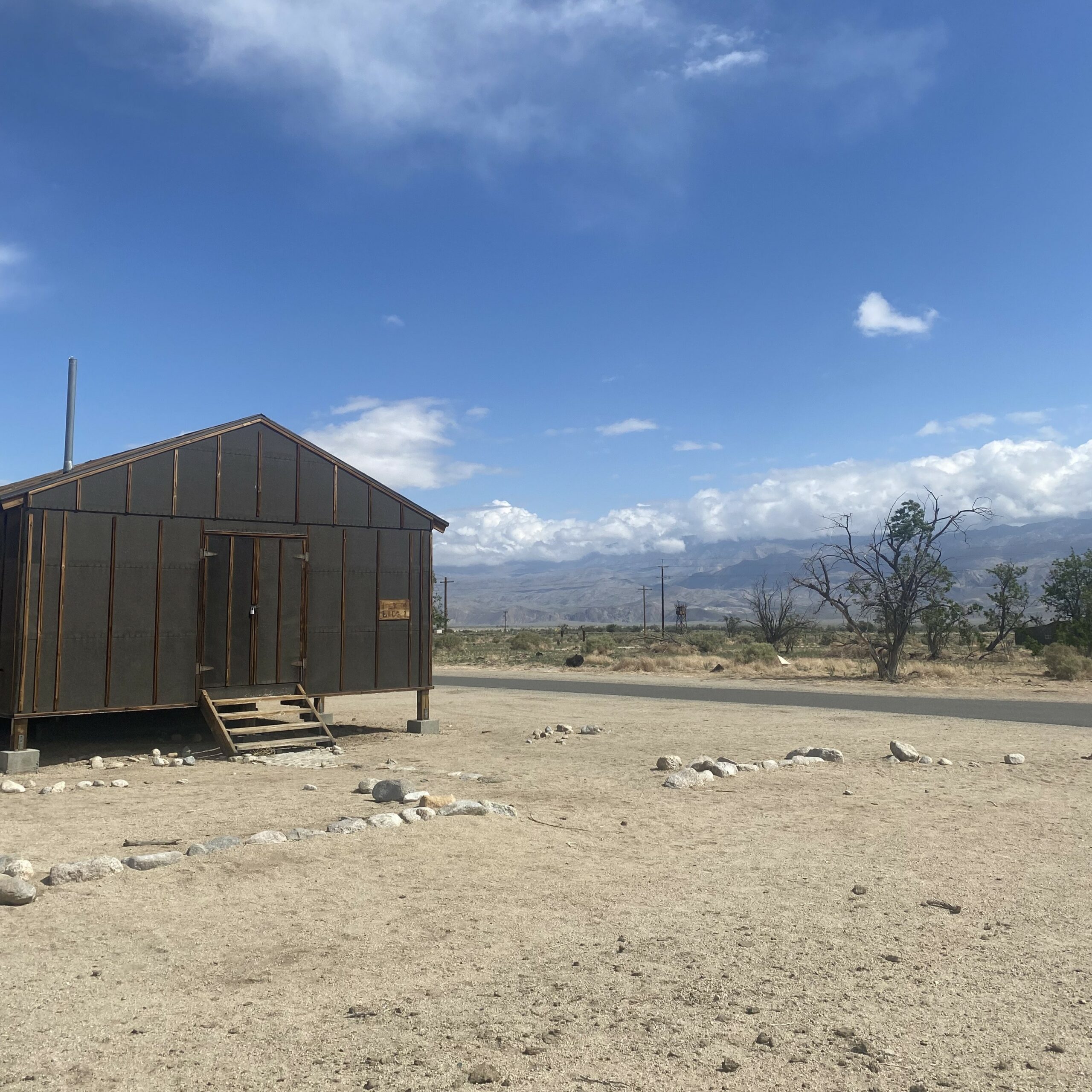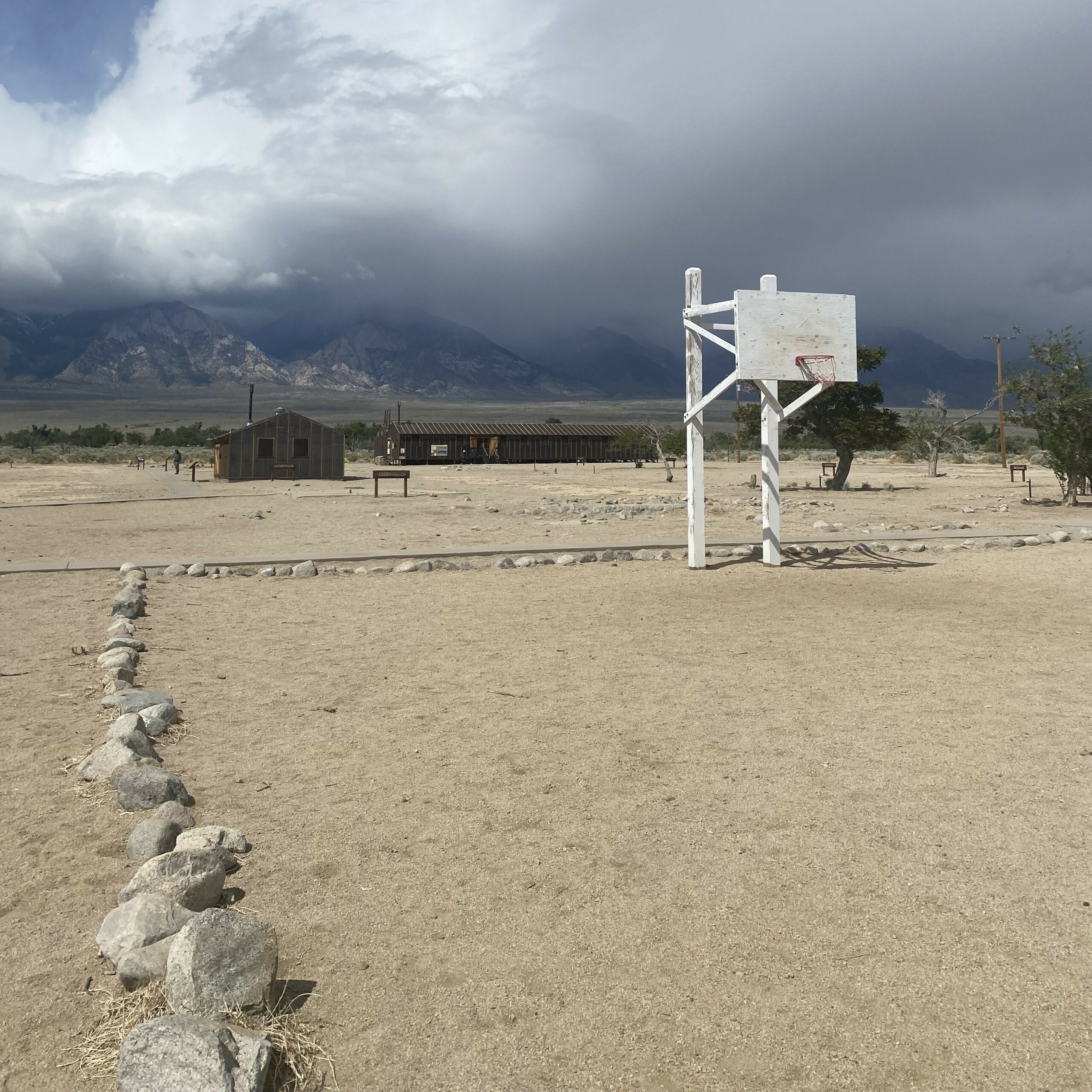
Lessons from Manzanar
By Jessie Mabry, CEO
May 2025
Upon arriving in Manzanar, I was struck immediately by the wind. As we toured the barracks where families lived, I reflected on what it must have been like to live with the constant wind with the only shelter being uninsulated 20’ by 25’ “apartments.” Still, despite the harsh conditions, this was a place where Japanese Americans established schools, newspapers, and planted gardens. It was a testament to resilience amid injustice—one rooted in policies and fears that are now repeating themselves today.
Each year, the Florin Chapter of the Japanese American Citizens League and the Sacramento Valley Chapter of the Council on American-Islamic Relations organize a pilgrimage from Sacramento to Manzanar. I was honored to join this year, starting the journey at the location off Florin Avenue where Japanese Americans departed for the camps over 80 years ago.
During World War II, the United States government forcibly relocated and detained approximately 120,000 people of Japanese ancestry—most of whom were American citizens—driven by wartime hysteria, racial prejudice, and policies like the Alien Enemies Act of 1798, which remains the law today. Disturbingly, this same act was recently invoked by the Trump administration to expedite the removal of immigrants from the United States.
A federal judge blocked this attempt to expedite the detention and deportation of migrants, including long-term U.S. residents, without due process. Still, immigrants are being rounded up by ICE, detained in inhumane conditions, and being sent back to the dangerous conditions from which they initially fled. These parallels in detention and abuses of power in the name of national security are not just history, but an urgent warning.


Japanese Americans were initially held in temporary assembly centers, often converted fairgrounds or racetracks, before being transferred to more permanent internment camps, euphemistically called "relocation centers." Some were deported without due process. Others would be transferred to one of ten permanent camps located in remote, desolate areas across the country. Horrifically, two of those permanent camps were located right here in California, including Manzanar outside of Bishop, California. Between 1942 and 1944, over 10,000 people were incarcerated at Manzanar.
As we traveled over the Sierra’s and South toward Bishop, survivors – all of whom were children during their incarceration – and their relatives shared stories of their families’ experiences. Listening to their descriptions of forced displacement, lost homes and livelihoods, and the generational impacts of trauma, I couldn’t help but think of the families we serve today. Every day as I walk through our office, I see the children of our clients playing with wooden blocks and reading books and their parents meet with their caseworker or their immigration attorney. What will these children’s stories be 80 years from now?
While on the pilgrimage, I learned the story of Bob Fletcher, an agricultural inspector from the Sacramento area at the time of World War II. As Sacramento’s Japanese Americans prepared for their imminent incarceration, 3 families asked Fletcher to manage their farms in their absence. Despite facing harassment from his community, Fletcher agreed, resigning his job so that he could manage 90 acres of grape farms for the Tsukamoto, Nitta, and Okamoto families. While the majority of people returning from the internment camps lost their properties, these 3 families returned to find their farms intact. In the years that they had been gone, Fletcher had maintained the farms, paid their mortgage and property tax bills, and saved half of the net profits for the Japanese farmers after their release.
For me, the pilgrimage to Manzanar was more than a powerful reminder of the past – it was a call to action. As history repeats itself through unjust policies and attitudes toward immigrants and refugees, we must ask: What actions can we take to defend our communities who are at-risk? We must commit to standing in solidarity with those facing injustice by advocating for policies that uphold justice and due process. Stand by your immigrant and refugee neighbors by supporting Opening Doors at openingdoorsinc.org/getinvolved.